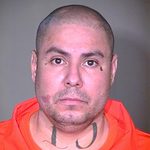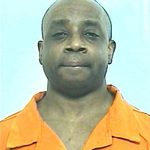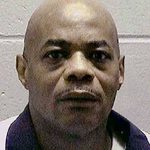
Representation
Background
“People who are well represented at trial do not get the death penalty.… I have yet to see a death case among the dozens coming to the Supreme Court on eve-of-execution stay applications in which the defendant was well represented at trial.”
— Justice Ruth Bader Ginsburg, University of the District of Columbia, April 2001.
The Sixth Amendment to the Constitution guarantees the right to an effective attorney for defendants charged with a capital offense. The adversarial nature of the American criminal-justice system heightens the need for a qualified defense attorney. The U.S. Supreme Court has mandated that criminal defense attorneys provide “effective representation.”[i] But that requirement comes with a high burden of proof and often too late: to be granted a new trial, a defendant must show both that his lawyer’s performance fell unreasonably below the accepted professional norms and that it is reasonably probable that the lawyer’s deficient performance affected the outcome of the trial.
In capital cases, the defense attorney has the responsibility both to vigorously challenge the state’s evidence of guilt to minimize wrongful convictions, and to make a case for a life sentence during the sentencing proceedings. The sentencer — who is most often a jury — is required to make a “reasoned moral response to the defendant’s background, character, and crime”[ii] and can only do so when presented with a complete social history of the defendant. Thus, defense counsel must be sufficiently skilled and experienced in challenging the State’s evidence and in developing mitigating evidence.
In addition to being specially trained in capital-defense work, attorneys must be provided adequate resources to fulfill their obligations to clients and the courts.
As the former director of the Tennessee Justice Project explains, ”[w]hen even the most capable and hard-working attorneys lack adequate resources to do their job, there is an increased risk that innocent people will be incarcerated, guilty people may never be prosecuted, and other defendants will receive unfairly excessive sentences.”[iii] Researchers found that 68% of death sentences imposed between 1973 and 1995 were reversed because of serious error, and one of the two leading causes of error was inadequate defense counsel.[iv] Moreover, of the 34 death-row prisoners exonerated between January 2007 and April 2017, inadequate legal defense was a leading contributing cause to their conviction in 23.5% of the cases.[v]
Obtaining the necessary resources to defend a capital case has been and continues to be a problem. For example, in the mid-1990s, Louisiana had limited “the compensation for court-appointed capital-defense counsel to $1,000 for all pretrial preparation and trial proceedings”; Kentucky had a cap of “$2,500 for the same services”; and Alabama limited “reimbursement for out-of-court preparation in capital cases to a maximum of $1,000 each for the trial and penalty phases”[vi] and paid attorneys $20 per hour for time spent preparing the case for trial.[vii] Such fees were inadequate to allow even minimal work to be done in capital cases. Investigating the crime and the defendant’s background — which includes many activities such as interviewing witnesses, reviewing the state’s evidence, building a relationship with the client — can take hundreds and even thousands of hours when done adequately. If a defense attorney spent 500 hours preparing for trial in Alabama in 1996, that attorney would be paid $2 per hour. Inadequate defense attorneys performing within an underfunded state system have led to wrongful convictions. See Case of Anthony Ray Hinton.
In the past two decades, however, there have been changes regarding capital defense and what is required to meet minimum performance standards. In 2003, the American Bar Association published defense standards for capital cases, which include having two attorneys, a fact investigator, and a mitigation specialist — a person trained to investigate the social history of the client. The U.S. Supreme Court has recognized these guidelines as persuasive when measuring attorney performance in death-penalty cases. Moreover, states have begun funding state-wide and regional capital defender programs, which experts have found increased the quality of representation and decreased the number of death sentences.[viii]
Despite these efforts, there are continuing instances in which capital defense attorneys provide egregiously substandard representation. In some instances, capital attorneys have slept through parts of the trial or showed up for court under the influence of drugs or alcohol. And even in states that provide funding, problems still arise. Here are a few examples:

Israel Naranjo— Convicted and sentenced to death in Arizona in 2011. Naranjo was given a state-appointed attorney who lied on his invoices, claiming he did investigative work and witness interviews that he did not. Naranjo has low intellectual functioning, which could have exempted him from the death penalty. On one of his invoices (which are public record), the attorney stated, “Looking at new video of our client from the past. He looks like a killer, not a retard.” In January 2017, Naranjo’s attorney was suspended from the practice of law for four years.[ix] Naranjo remains on Arizona’s death row.

James Fisher— Convicted and sentenced to death in Oklahoma in 1983 and again in 2005. Fisher had his conviction and sentence overturned because of ineffective assistance of counsel not once, but twice. Fisher’s conviction was initially reversed after the federal appellate court found that his trial counsel “exhibited hostility to his client and sympathy and agreement with the prosecution in ways that put his actions directly at odds with his client’s interests.”[x] During his second trial, Fisher’s attorney “spent less time working on cases and more time drinking beer and playing pool during work hours.” His attorney was “drinking heavily and abusing cocaine,” which resulted in neglecting his clients’ cases.[xi] After his conviction was reversed a second time, Fisher reached a settlement agreement with prosecutors.

Robert Wayne Holsey— Convicted and sentenced to death in Georgia in 1997. “Holsey’s lead defense lawyer drank a quart of vodka every night of Holsey’s trial while also preparing to be sued, criminally prosecuted, and disbarred for stealing client funds.”[xii] Despite these facts, Holsey was denied relief because he could not show that he was prejudiced by his attorney’s performance. Holsey was executed in 2014.

George McFarland— Convicted and sentenced to death in Texas in 1992. McFarland’s lead attorney, whom he hired upon advice of an acquaintance, spent only four hours preparing and slept through parts of the 17-day trial, being nudged at times by the bailiff and being admonished by the judge.[xiii] The Texas Court of Criminal Appeals said the fact that McFarland had been appointed another attorney — even though that person had never tried a capital case and McFarland did not communicate with him — was sufficient to protect his right to counsel.[xiv] McFarland remains on Texas death row.